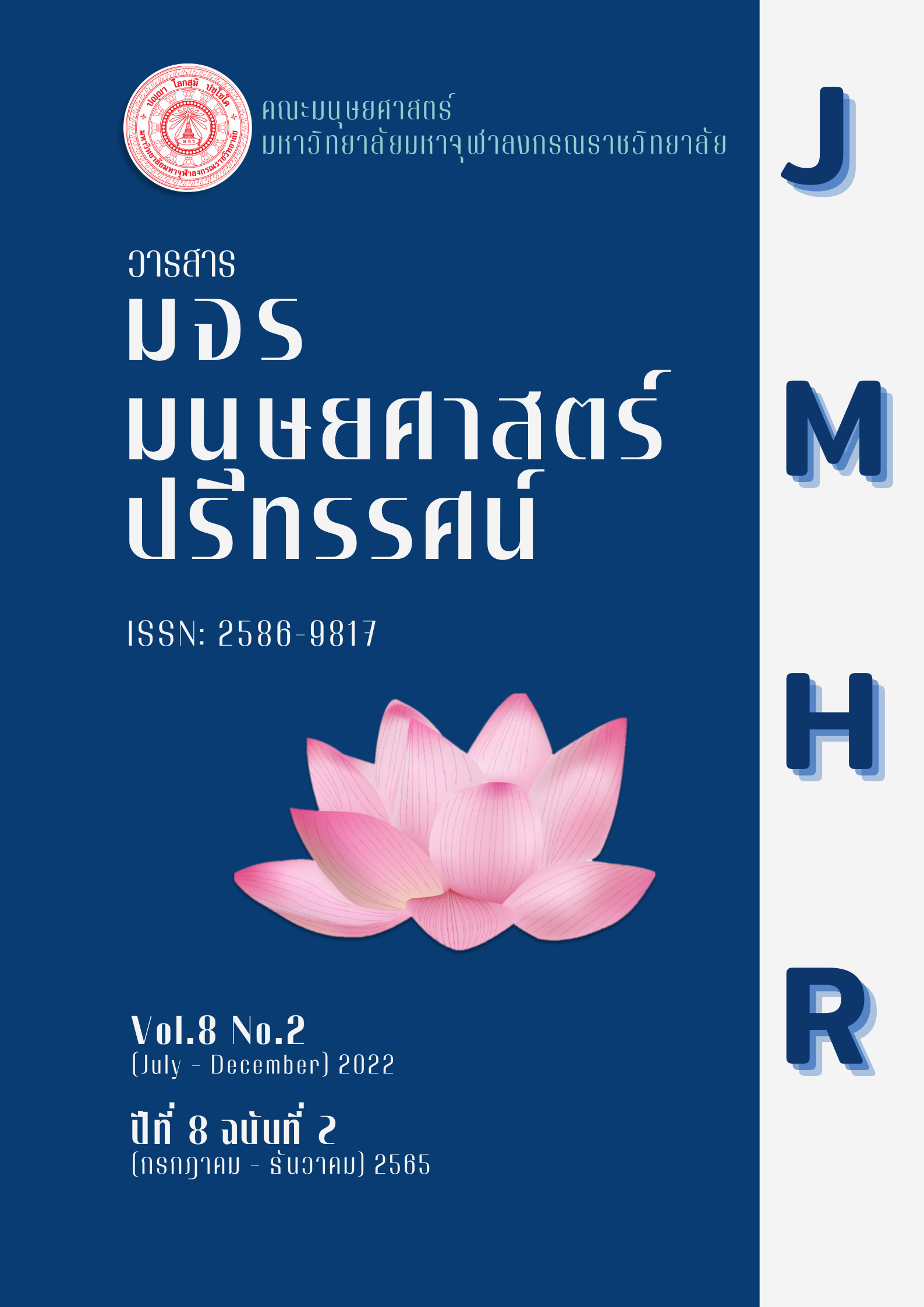แนวทางการพัฒนาคุณลักษณะตามหลักไตรสิกขาของผู้บริหารวิทยาลัย ในอาชีวศึกษา จังหวัดพังงา
คำสำคัญ:
การพัฒนาคุณลักษณะ, ไตรสิกขา, ผู้บริหารวิทยาลัยบทคัดย่อ
การวิจัยครั้งนี้มีวัตถุประสงค์เพื่อ 1. ศึกษาสภาพคุณลักษณะของผู้บริหารวิทยาลัย 2ใ ศึกษาแนวทางการพัฒนาคุณลักษณะตามหลักไตรสิกขาของผู้บริหารวิทยาลัย 3. เสนอแนวทางการพัฒนาคุณลักษณะตามหลักไตรสิกขาของผู้บริหารวิทยาลัย การวิจัยนี้เป็นการวิจัยแบบผสานวิธี ระหว่างการวิจัยเชิงปริมาณกับการวิจัยเชิงคุณภาพ กลุ่มตัวอย่างที่ใช้ในการวิจัย ได้แก่ ผู้บริหารและครู จำนวน 127 คน เครื่องมือที่ใช้ในการวิจัยเป็นแบบสอบถาม สถิติที่ใช้ในการวิจัย ได้แก่ ค่าร้อยละ ค่าเฉลี่ย ค่าเบี่ยงเบนมาตรฐาน โดยใช้สูตรสัมประสิทธิ์แอลฟา ตามวิธีของครอนบาค (Cronbach) และแบบสัมภาษณ์เชิงลึกผู้เชี่ยวชาญ 5 คน และสนทนากลุ่มผู้ทรงคุณวุฒิ 7 คน เครื่องมือที่ใช้เป็นแบบสัมภาษณ์ประเด็นการสนทนากลุ่ม (Focus Group)
ผลการศึกษาวิจัยพบว่า
- สภาพคุณลักษณะของผู้บริหารวิทยาลัย โดยรวมอยู่ในระดับมาก เมื่อพิจารณาเป็นรายคุณลักษณะ พบว่า คุณลักษณะด้านวิชาการ มีค่าเฉลี่ยสูงสุด รองลงมาคุณลักษณะด้านความเป็นผู้นำ คุณลักษณะด้านบุคลิกภาพ และคุณลักษณะด้านวิสัยทัศน์ มีค่าเฉลี่ยต่ำสุดตามลำดับ
- แนวทางการพัฒนาคุณลักษณะตามหลักไตรสิกขา ของผู้บริหารวิทยาลัย ใช้หลักไตรสิกขา คือ ศีล สมาธิ และปัญญา โดยการฝึกศีล คือ ศีล 5 เพื่อกำกับควบคุมความประพฤติทาง กาย วาจา การฝึกสมาธิ หรือการพัฒนาจิตของตน โดยการฝึกลมหายใจ สมาธิจะเกิดสภาวะจิตที่สงบ ซึ่งเป็นภาวะที่จิตมีพลัง มีสติและสัมปชัญญะเกิดเป็นปัญญา คิดสร้างสรรค์ วางแผนงานจัดองค์กรได้ดี กำกับ ควบคุม มีศักยภาพทางด้านการวิเคราะห์ สังเคราะห์ สามารถทำให้ผู้ร่วมงาน เกิดความเคารพ ศรัทธา เชื่อถือ และพร้อมที่จะทำตามสภาวะของผู้บริหาร
3. การนำเสนอแนวทางการพัฒนาคุณลักษณะตามหลักไตรสิกขา ของผู้บริหารวิทยาลัย ผู้ทรงคุณวุฒิในการร่วมสนทนากลุ่ม ซึ่งทุกคนเห็นว่า มีความเหมาะสม มีความเป็นไปได้ และมีความเป็นประโยชน์ และมีโครงสร้างตามองค์ประกอบที่ผู้ทรงคุณวุฒิเสนอแนะ
เอกสารอ้างอิง
ประเวศ วะสี. (2551). ยุทธศาสตร์ทางปัญญาและการปฏิรูปการศึกษา. กรุงเทพฯ : วัฒนาพานิช.
พระครูปลัดอเนก ปุณฺณวุฑฺโฒ (แกวดวงดี). (2561). รูปแบบการบริหารตามหลักไตรสิกขาของผู้บริหารโรงเรียน สังกัดสำนักงานเขตพื้นที่การศึกษามัธยมศึกษา เขต 5 (วิทยานิพนธ์ศึกษาศาสตรดุษฎีบัณฑิต). มหาวิทยาลัยมหาจุฬาลงกรณราชวิทยาลัย : นครสวรรค์.
พระใบฎีกาธีรศักดิ์ สุธีโร (น้อยอ่อน). (2560). ศึกษาการประยุกต์ใช้หลักไตรสิกขาในการส่งเสริมคุณธรรมจริยธรรม ตาม แนวทางพระพุทธศาสนาเถรวาท โรงเรียนกระสังพิทยาคม ตำบลกระสัง อำเภอกระสัง จังหวัดบุรีรัมย์ (วิทยานิพนธ์พุทธศาสตรมหาบัณฑิต). มหาวิทยาลัยมหาจุฬาลงกรณราชวิทยาลัย : บุรีรัมย์.
พระพรหมคุณาภรณ์ (ป.อ. ปยุตฺโต). (2553). พจนานุกรมพุทธศาสน์ ฉบับประมวลศัพท์. กรุงเทพฯ : บริษัทสหธรรมิก.
พระอธิการสกายแลบ ธมฺมธโร (นามโท). (2561). การบริหารสถานศึกษาตามหลักไตรสิกขา ในสถานศึกษาขั้นพื้นฐาน สังกัดสำนักงานเขตพื้นที่การศึกษาประถมศึกษาชัยถูมิเขต 1 (วิทยานิพนธ์พุทธศาสตรมหาบัณฑิต). มหาวิทยาลัยมหาจุฬาลงกรณราชวิทยาลัย : ขอนแก่น.
มหาวิทยาลัยสุโขทัยธรรมาธิราช. (2550). การบริหารงานบุคคลในโรงเรียน. มหาวิทยาลัย สุโขทัยธรรมาธิราช : นนทบุรี.

ดาวน์โหลด
เผยแพร่แล้ว
รูปแบบการอ้างอิง
ฉบับ
ประเภทบทความ
หมวดหมู่
สัญญาอนุญาต
ลิขสิทธิ์ (c) 2022 วารสาร มจร มนุษยศาสตร์ปริทรรศน์

อนุญาตภายใต้เงื่อนไข Creative Commons Attribution-NonCommercial-NoDerivatives 4.0 International License.





